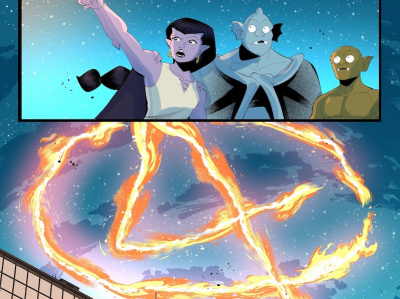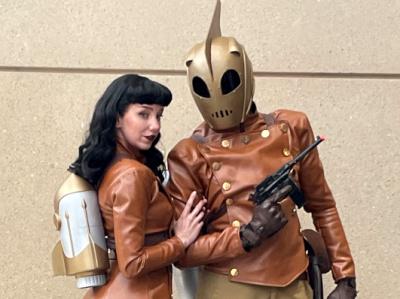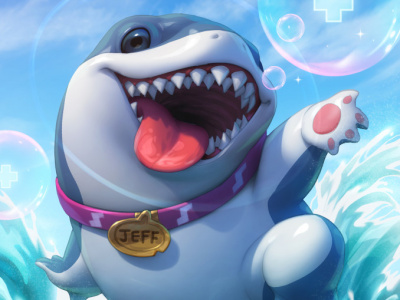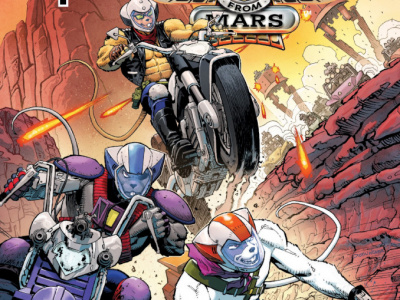
The reaction to Chris Roberson's tweets about leaving DC over its treatment of other creators (see "Chris Roberson Leaves DC") and DC's reaction and statements (see "DC Speeds Roberson's Departure" and "Lee: Roberson Fired for 'Morale'") has been way out of proportion to any obvious business impact. Roberson was on relatively minor books and wasn’t considered to have a major fan base of his own. But discussion boards, blogs, and social media have been on fire.
One of the best posts on Wednesday was Heidi Macdonald's at The Beat in which she reviews the history of the DC-Moore relationship, and noting that one reason DC CEO Diane Nelson has that role is because of her handling of the Harry Potter franchise and its creator, J.K. Rowling, asks repeatedly "Would WB treat Rowling the way DC treated Moore?"
Tom Spurgeon at Comics Reporter notes a possible cost of the brouhaha to the Big Two comic publishers in that other creators may now become less likely to work at those companies. Spurgeon also had one of the most biting Tweets of the last week with this dagger on The Avengers, "The exciting thing about Avengers is that it puts a bunch of different ways Jack Kirby was disrespected onto one team."
And Image Comics CEO Eric Stephenson pointed out his company's position in a blog post earlier this week in which he emphasized Image's consistent policy over the last 20 years to allow creators to keep 100% ownership of their work.
Why is there this kind of reaction to the departure of a relatively minor creator from DC? Because it fits a pre-existing narrative of creator issues with the Big Two comic publishers. There's the constant drumbeat of news coming from the courtrooms where Marvel and DC are engaged in fierce battles with the heirs of the creators of the characters on which their companies are based (see "Kirby Heirs File Appeal" and "Warner Bros. Wins Key Point in Case Against Toberoff").
Then there are more recent events. On the Marvel side, there’s the company's claim against writer Gary Friedrich for royalties on Ghost Rider prints and merchandise he'd sold at conventions (see "'Ghost Rider' Creator owes Marvel $17 Grand"). And on the DC side, there's the plan to produce prequels to Watchmen against the wishes of writer Alan Moore (see "DC Announces ‘Watchmen’ Prequel"). Put it all together and it doesn't take much to set things ablaze, and Chris Roberson was there with a match at the right place at the right time.
Although it may not be visible (as Spurgeon points out), there's a cost to this kind of narrative, both with the creators that the Big Two need to produce their comics, and with the fans they need to buy them. In the past, Marvel and DC and their corporate parents haven't believed that those costs were high enough to make it worthwhile to settle with their early creators, or more broadly to make more decisions in creators' favor. With this latest eruption, the cost side of the ledger just got another entry.







